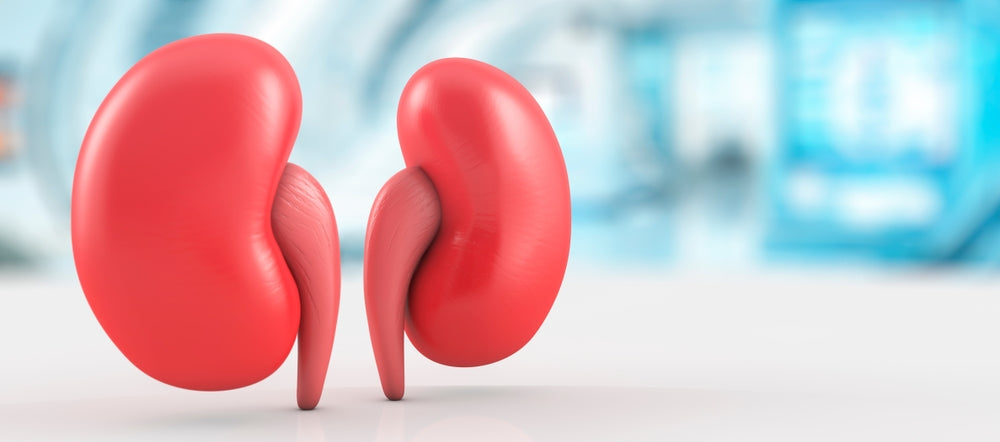
Understanding the Vital Role of Kidneys: A Comprehensive Guide
Share
The human body is a complex network of organs working in harmony to maintain life and health. Among these, the kidneys play a crucial role that often goes unnoticed until problems arise. This blog will delve into the structure, functions, common diseases, and tips for maintaining kidney health.
1. The Anatomy of the Kidney
Kidneys are two bean-shaped organs located on either side of the spine, just below the rib cage. Each kidney is roughly the size of a fist and houses over a million tiny filtering units called nephrons. These nephrons are vital for filtering blood and producing urine, helping the body maintain balance and remove waste products.
2. Functions of the Kidneys
The kidneys are multi-taskers with several essential functions:
- Filtration of Blood: Kidneys filter approximately 120-150 quarts of blood daily, producing 1-2 quarts of urine containing waste and excess fluids.
- Regulation of Fluid and Electrolytes: They help balance the body’s levels of sodium, potassium, and other electrolytes, which is essential for proper nerve and muscle function.
- Acid-Base Balance: Kidneys maintain the pH level of the blood, ensuring it is not too acidic or alkaline.
- Hormone Production: Kidneys produce hormones like erythropoietin, which stimulates red blood cell production, and renin, which helps regulate blood pressure.
-
Bone Health: By converting vitamin D to its active form, kidneys play a role in calcium absorption for strong bones.
3. Common Kidney Diseases
While the kidneys are resilient, various factors can affect their function. Here are some common conditions:
- Chronic Kidney Disease (CKD): A long-term condition where the kidneys gradually lose function. It can be caused by diabetes, high blood pressure, or genetic predispositions.
- Kidney Stones: Hard mineral deposits that form in the kidneys and can cause severe pain when passing through the urinary tract.
- Acute Kidney Injury (AKI): A sudden loss of kidney function due to trauma, severe dehydration, or drug toxicity.
- Polycystic Kidney Disease (PKD): A genetic disorder where clusters of cysts develop in the kidneys, affecting their function.
-
Glomerulonephritis: Inflammation of the kidney’s filtering units, often resulting from infections or autoimmune diseases.
4. Symptoms of Kidney Problems
Early-stage kidney disease often has no symptoms, which is why regular check-ups are essential. Some warning signs include:
- Swelling in the ankles, feet, or hands due to fluid retention.
- Fatigue and general weakness from reduced red blood cell production.
- Changes in Urination: Increased frequency, reduced urine output, or blood in the urine.
- Nausea or vomiting.
-
Persistent Itchiness due to the build-up of waste products.
5. Tips for Maintaining Kidney Health
The good news is that proactive measures can help maintain kidney health and prevent complications:
- Stay Hydrated: Drinking enough water helps the kidneys flush out toxins effectively.
- Balanced Diet: Limit salt, processed foods, and red meats. Emphasize fruits, vegetables, and whole grains.
- Monitor Blood Pressure: High blood pressure is a leading cause of kidney damage. Regular checks can help manage it early.
- Manage Blood Sugar: For those with diabetes, keeping blood sugar levels under control is vital to prevent kidney damage.
- Avoid Overuse of Painkillers: Frequent use of non-steroidal anti-inflammatory drugs (NSAIDs) can impair kidney function over time.
- Quit Smoking and Limit Alcohol: Both habits can contribute to high blood pressure and decrease kidney efficiency.
-
Exercise Regularly: Helps maintain a healthy weight and blood pressure, reducing the risk of CKD.
6. When to See a Doctor
If you experience any signs of kidney problems, such as persistent swelling, difficulty urinating, or changes in urine color, consult a healthcare provider. Early diagnosis and treatment can prevent further damage and improve outcomes.
Conclusion
The kidneys might be small, but they perform some of the body’s most vital functions. Understanding their role and taking proactive steps to care for them can help ensure long-term health and prevent complications. Keep your kidneys healthy with lifestyle choices that promote hydration, balanced nutrition, and regular medical check-ups.
Maintaining kidney health is not just a medical necessity; it’s an investment in your overall well-being.
